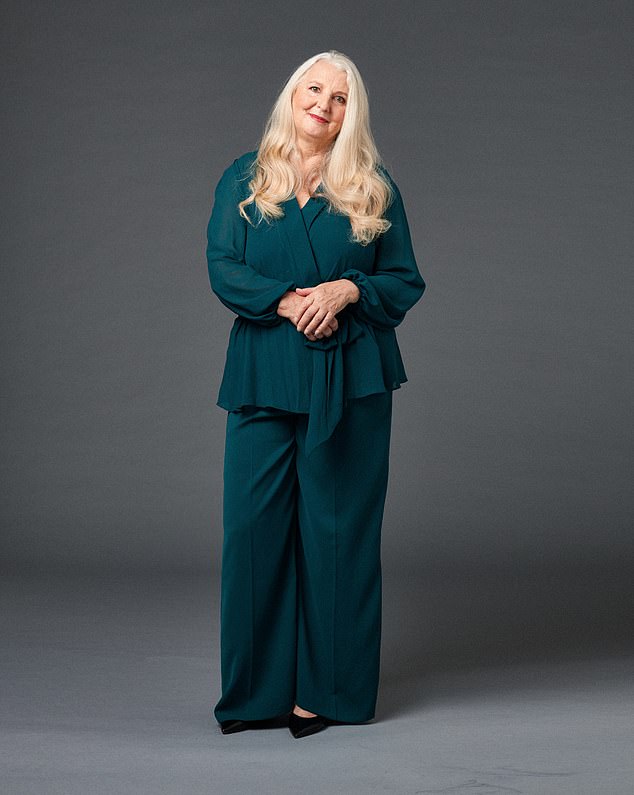“Marionnnnn!” Like clockwork, I heard my boss yell my name through his office door for the umpteenth time that morning. Rolling my eyes, I turned to a colleague and whispered my anger at being treated like an unruly child.
We routinely shared these complaints about “the one-who-must-be-obeyed.”
We also talk about Julie* being late for the third time that week (set your damn alarm and be on time like the rest of us suckers) and Melissa twirling her hair every time her older male colleagues hovered near her desk.
So yeah, I have a confession to make: I was an office gossip.
I didn’t know there was a stigma around such a thing, but according to a recent study by Leeds Business School, coworkers view people like me as less competent and less moral. Well, I disagree.
According to a recent study by Leeds Business School, office gossips are seen by co-workers as less competent and moral. Pictured: Marion McGilvary

“It was a tough environment, where money was tight, stress levels were high and layoffs were imminent. Gossip was the only thing that kept us going.”
For me, workplace gossip is an essential element to lift morale. A safety net.
At my last place of work, we were a tight-knit group. We had to be. It was a tough environment where money was tight, stress levels were high, and layoffs were imminent. Gossip was the only thing that kept us going.
The kitchen was our meeting place, the place where we gathered to worry, vent, and sometimes even cry. We worked together, played together, and moaned together.
It was like a family, and I don’t know what your family is like, but mine has its complaints. Often. Can we expect work to be any different?
You are crammed into a space, often open-plan, with 20 people whose company you have not chosen and you have to go up or out.
It’s like being in a prison with Pret A Manger sandwiches. Of course, there were arguments and disagreements. At a time like this, gossip is essential to reduce tension; it’s much better to vent quietly to a colleague than to go and tell the boss to go fuck himself.
At my last office I had a “work wife.” I probably knew more about her than her husband did, and I certainly spent more time with her than with him. Well, awake, at least. We talked about everything: our families and friends, but also our bosses and other colleagues.
Would he have told any of his secrets to anyone else? Of course not. Being a talkative bigmouth doesn’t mean you’re indiscreet or untrustworthy.
In fact, the Leeds survey admitted that office gossips are “trustworthy” and being one “can be seen as a hallmark of a well-connected individual with an extensive social network.”
It’s true. Gossipmongers like me are funny, always up for a laugh, and have plenty to say, whether it’s a quick chat in the corner or a trip to the bar to catch up.

Marion thinks gossips like her are funny: always ready to laugh and with lots to say.
It’s much better to be the office gossip than the boring person who is so busy talking about himself and his accomplishments that he barely takes a break to think about others.
Office gossips pick up on things about the people around them, you know? And I like to think I’ve helped my coworkers out with my nosy nose.
The same study that suggested gossip is seen as immoral also highlighted that gossip “is often useful in uncovering workplace problems that might not be reported through formal channels and can help boost employee morale.”
We had a colleague who would call another out of the office, late at night, telling him he was depressed and unhappy.
The two in question were not particularly friendly, and if they had not told me about this, even very discreetly, I would not have been able to intervene and suggest advice.
On another occasion, I was sent to a coworker’s house to check on her as she wouldn’t get out of bed and her roommate was worried about her – quite rightly so, as it turns out.
So where is the line between gossip and concern?
Did telling me these stories make the people who shared them with me less loyal or moral? Quite the opposite, I would say.
Private information was shared, leading to a confusion in work-life balance, but in both cases my interest in a colleague’s life — whether he liked it or not — had a positive outcome.
Of course, it’s not always easy to be in this position of power that I’ve assigned to myself. I was the keeper of many uncomfortable secrets, and if I had revealed them all, I would have been rightly fired, but I will go to the grave with them.

Gossip isn’t necessarily malicious, mean, or defamatory, and there’s a big difference between being the office gossip and the office “bitch.”
And in less clear-cut cases, I like to think that I generally had my colleagues’ best interests in mind, so I shared a substantial amount of pertinent information — such as discreetly telling someone that I’d noticed they were spending too much time shopping online — but never a confidence or anything like that.
You see, gossip isn’t necessarily malicious, mean or vulgar, and there’s a huge difference between being the office gossip and the office bitch.
Traditionally, gossip is considered a feminine trait, but some of the worst offenders I’ve worked with were men.
Women may be catty, but men’s claws are just as sharp, only they often get away with dismissing their naughty comments as “jokes.”
A long time ago, in one of our offices we had a curvy girl who liked tight clothes. A colleague asked me to talk to her about covering up. Meanwhile, there was another woman in the office with a sylph-like figure who wore spray-on dresses, but nothing was said about her.
In that situation, I was very happy to pass on the double standard to the other women in the office, who were suitably surprised.

“The person I worry about most in an office is the one who gets along with the boss: the flirt, the manipulator,” says Marion.
I hope that a similar situation does not occur today. Office culture is improving in that regard, but I fear that workplace gossip is evolving for the worse.
Younger team members at a previous office prided themselves on valuing a positive work environment.
In practice, this meant that they simply waved their hands at how politically incorrect the rest of us were, while they picked at their vegan lunches. There was a clear and difficult divide between them and us.
However, this is nothing compared to the division that working from home has created.
What’s the point of gossiping when people only connect with their colleagues through the occasional Zoom call?
They barely know each other well enough to gossip. You might think this is good news, but, for me, it just leaves vulnerable team members with no one to vent to, meaning they can suffer through a genuine problem in silence. Office gossip does far more good than harm in situations like this.
The person I worry about most in an office is the one who makes friends with the boss: the flirt, the manipulator. I’ve seen plenty of them. Men and women. They break confidences, both at the top and bottom of the management food chain.
Trust them and you’ll trust a snake that will stop at nothing to get to the top. Give me a piece of gossip any day.
- The names have been changed
(tags to translate)dailymail


